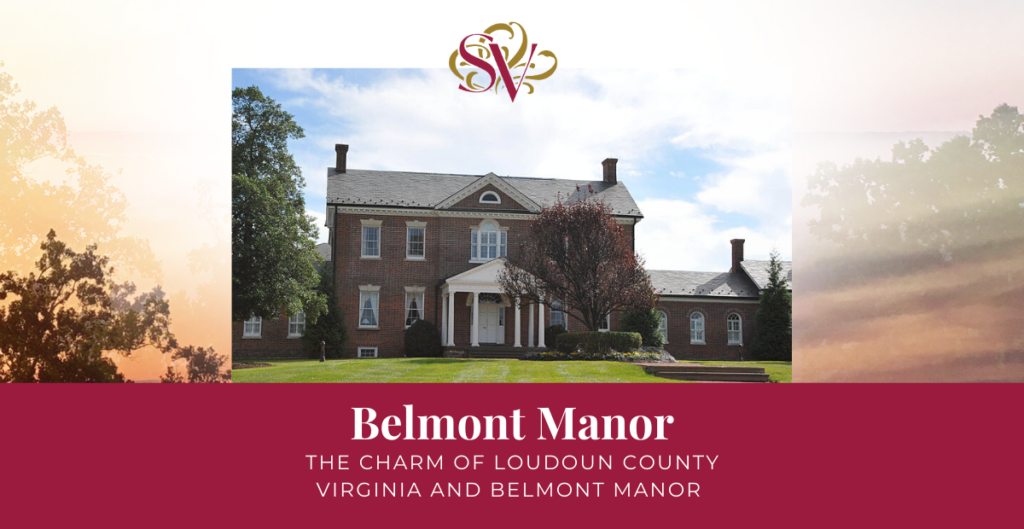
Like most grand houses with a past, Belmont Manor had a long trajectory as the place to see and be seen. Built by Ludwell Lee between the years of 1799 and 1802 on land he acquired through marriage to his first cousin Flora Lee, Belmont saw its fair share of luminaries brighten its imposing doorstep.
Ludwell Lee was born on October 13, 1760, the second son of Richard Henry Lee and Anne Aylett, and was steered towards a career in law, the appropriate pursuit of the well-born. Ludwell studied in England and France, where he dealt with the awkwardness that resulted from his father, Richard Henry Lee, being one of the original signers of the Declaration of the Independence. He left the law in 1781 and became aide-de-camp to Marie-Joseph Paul Yves Roch Gilbert du Motier, Marquis de La Fayette (we’ll refer to him as General Lafayette for brevity’s sake.)
After a tenure in the Virginia General Assembly, Lee retired to Loudoun County as a prosperous farmer, hosting some of the most illustrious personalities of the day. President James Madison was a frequent visitor, as well as General Lafayette, who aside from being godfather to one of Lee’s five daughters, made a lasting impression on the citizens of the burgeoning region.
Lafayette fought with valor at many of the most important battles of the Revolutionary War, and was made division commander by then-General George Washington. Lafayette was a man who was vetted, trusted and liked by many of the most influential people in American History. Each of these relationships would create bonds that would bring some of the most illustrious back to Loudoun County and to the hearth of Belmont Manor.
According to the newspapers of the time, few visitors to our nation had been received with so much pomp and circumstance as Lafayette. Congress wanted to transport the 66-year-old marquis by a U.S. frigate, but he insisted on paying his own way and that of his son, George Washington Lafayette, and his secretary, August Levasseur. The overriding purpose of the General’s visit was to visit former President James Monroe at his home in Oak Hill, in the outskirts of Leesburg, Virginia, and in the course of this visit, he managed to lay his head on the best goose down pillows in Loudoun County.
Arriving on Aug. 6, 1825, the town of Leesburg exploded in festivities for the General’s entourage, a cannonade welcome and crowds lined the streets, cheering for one of the charismatic heroes of the Revolutionary War. Henry Dwight Sedgwick, Lafayette’s biographer noted: “All the way was like the trail of a comet; a line of coaches, escorts of horsemen, torches by night, bonfires on hilltops, speeches, hand shakings, cheers.” What may not be as well known is that those “torches by night” were handheld by the enslaved at both Belmont and neighboring Coton Farm, to light the path for guests traveling between the two plantations.
His assistant Levasseur’s observations of the many young ladies and women who lined the narrow streets, taking special care to describe their festive ensembles: “dressed in white, with blue sashes, and their heads were tastefully adorned with evergreens.” According to lore, red-headed General Lafayette was quite the charmer.
Lafayette and party found Monroe happily retired at his home in Oak Hill, “pleasantly settled, with all his family, in a handsome house, near his farm. We spent three days in their company, and then the inhabitants of Leesburg, a small adjacent village, came, in company with the Loudoun County militia, to invite the presence of the nation’s guest to an entertainment.”
We are fortunate to have a record of the General’s procession through Leesburg, courtesy of Levasseur’s meticulous notes: “the procession moving through Loudoun, Market, Back [today named Wirt Street], Cornwall, and King Streets” – encompassing most of the town and its 1,500 residents at the time. He then returns to the young ladies of the Leesburg Female Academy who had come out to watch: “The line of young ladies was particularly interesting.” Charmer indeed.
That evening, General Lafayette and company stayed with the Lee’s in Belmont, no doubt thoroughly enchanted with the hero’s welcome they’d received. There still exist sketches from that visit, currently in a downtown Leesburg office building that once was the home of the Mayor of Leesburg during the time of the auspicious visit. Ludwell Lee died on March 23, 1836, at Belmont, and was buried in Saint James Episcopal Cemetery in Leesburg. His obituary mentioned his service and fortune, his career and his friendship with those who helped form the landscape of our national history.

Sharon Virts is a successful entrepreneur and historical fiction author. Her passion for storytelling is encapsulated in her novel Masque of Honor. It is one of the best historical fiction books chronicling the drama, life, loves and struggles of two families of the Virginia aristocracy following the War of 1812. Sharon Virts has captured Virginia history in this American historical fiction novel based on the true story of two cousins in the early 19th century. Set in Loudoun County Virginia and the District of Columbia it is both historical fiction romance and historical fiction drama.


